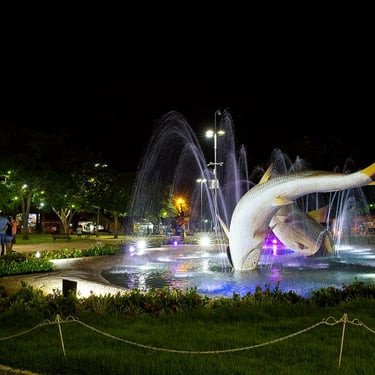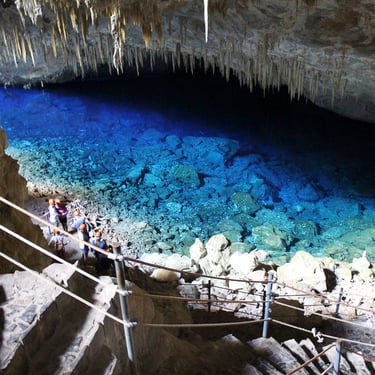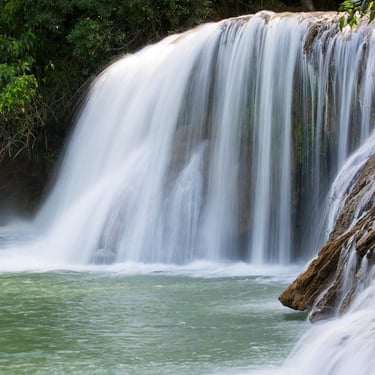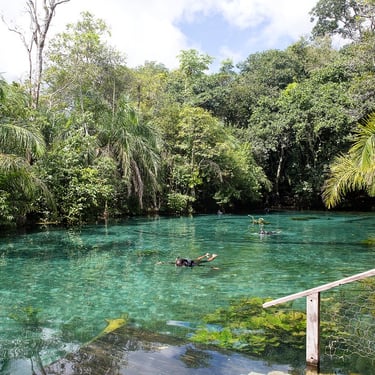The World-Class Ecotourism Capital of South America
The World-Class Ecotourism Capital of South America. Bonito, located in the state of Mato Grosso do Sul (Brazil), is one of the global leaders in responsible ecotourism, combining pristine rivers, crystal-clear underwater caves, protected forests, and world-famous sustainability practices. Frequently described as “the ultimate nature-and-adventure city”, Bonito attracts travelers seeking authentic outdoor experiences with controlled visitor numbers and strong environmental protection.
TRAVEL
Unveiled Brazil
11/23/20253 min read
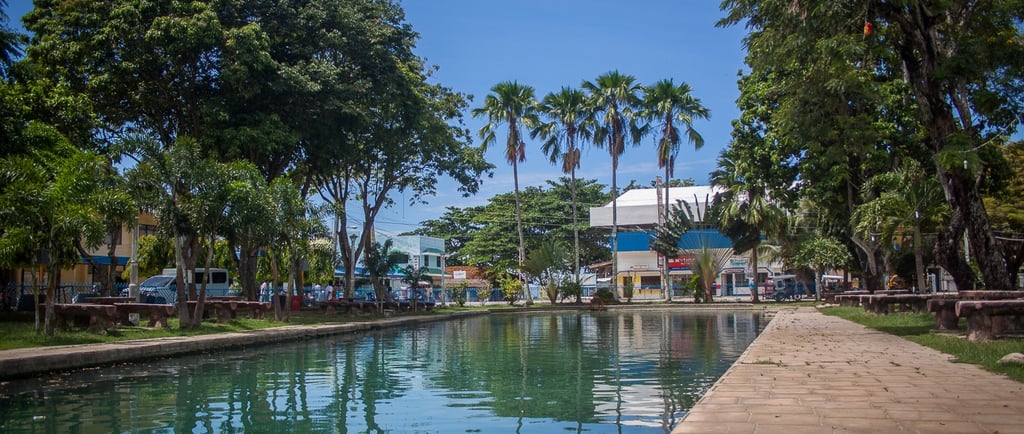

Bonito, Brazil: The World-Class Ecotourism Capital of South America
Bonito, located in the state of Mato Grosso do Sul (Brazil), is one of the global leaders in responsible ecotourism, combining pristine rivers, crystal-clear underwater caves, protected forests, and world-famous sustainability practices. Frequently described as “the ultimate nature-and-adventure city”, Bonito attracts travelers seeking authentic outdoor experiences with controlled visitor numbers and strong environmental protection.
Below is the most complete guide available for international travelers planning a trip to Bonito — including how to get there, where to stay, best tours, safety infrastructure, trained guides, costs, weather, packing lists, and free-to-use images.
1. Why Bonito Is Brazil’s Adventure & Nature Capital
Bonito became internationally famous because of its:
Crystal-clear rivers, rich in colorful fish (due to limestone filtration)
Caves and underwater caverns with surreal blue lakes
Strict environmental rules for visitor limits
Adventure activities such as snorkeling, rafting, diving, abseiling & ziplining
Highly trained guides and monitors required on every tour
Award-winning sustainable tourism management
It is considered one of the most environmentally protected destinations in Brazil, with tourism planned through the “Voucher Único” system, which limits daily visits to each attraction.
2. How Guides, Monitors, and Instructors Are Trained in Bonito
All activities in Bonito require certified local guides, following strict training protocols:
✔ Technical Training Includes:
Rescue techniques and first aid
Wilderness emergency protocols
Environmental education and conservation
Underwater safety for snorkeling/diving
Visitor management and behavior control
Wildlife orientation and risk assessment
✔ Certifications Required:
National Tour Guide Registry (Cadastur)
Additional site-specific qualifications (e.g., abseiling certification for Abismo Anhumas)
Training is monitored by:
Municipality of Bonito Tourism Secretariat
State Environment Institute (IMASUL)
Private attractions that conduct internal training sessions
This makes Bonito one of the safest adventure destinations in Brazil.
3. Distance Between the Main Attractions and Bonito City Center
4. Is It Better to Stay Near the Attractions or in Bonito City?
Stay in Bonito city.
There is no accommodation located inside the attractions, and most tours are between 10–55 km from town.
Advantages of staying in Bonito:
Walkable center with restaurants and shops
Easy pickup by tour agencies
Better prices and availability
Safer and with good infrastructure
Rural lodges exist but are limited and usually connected to a single attraction.
5. Best Travel Agencies for International Tourists
These agencies are known for multilingual service (English/Spanish) and strong support for foreign travelers:
1. H2O Ecoturismo & Eventos
2. Águas Turismo
3. Bonito Way
4. Ygarapé Tour
5. Acqua Studio de Viagens
These companies can arrange:
Airport transfers
Tours + transportation
English-speaking guides
Hotel bookings
6. How to Get to Bonito From Outside Brazil
✔ 1. Fly to Brazil (São Paulo, Rio, or Brasília)
International visitors usually land at:
São Paulo (GRU)
Rio de Janeiro (GIG)
Brasília (BSB)
✔ 2. Connect to Campo Grande (CGR)
Daily flights operate from major Brazilian cities.
3. Choose One of These Options to Reach Bonito:
Direct flight CGR → Bonito (BYO) – when available
Shuttle vans (3h–4h)
Private transfer
Car rental
Most tourists arrive via Campo Grande.
7. Most Popular Hotels in Bonito (for International Guests)
Luxury / Premium
Zagaia Eco Resort
Wetiga Hotel
Bonito Ecotel
Mid-Range Favorites
Hotel Pirá Miúna
Pousada Arte da Natureza
Pousada Gira Sol
Budget Travelers
CLH Suites Bonito
Papaya Hostel
Each provides airport pickup services upon request.
8. Is “Pedra que Canta / Lagoa que Canta” in Bonito?
There is no official attraction in Bonito called “Pedra que Canta” or “Lago que Canta”.
You may be thinking of:
Lagoa Misteriosa (famous deep-blue diving lake)
Nascente Azul (turquoise spring)
If you want, I can confirm the exact place you're searching for.
9. Costs of Accommodation and Food
Average Hotel Prices
Budget: US$ 25–45 per night
Mid-range: US$ 55–95 per night
Premium: US$ 120–280 per night
Food Costs
Local restaurants: US$ 7–12 per meal
Better restaurants: US$ 15–28
Tasting menus or premium dining: US$ 40–70
Tours are the major cost, ranging from US$ 20 to US$ 250, depending on the activity.
10. Health Infrastructure for International Travelers
Bonito maintains solid health support for tourists:
✔ Hospitals & Clinics
Hospital Darci João Bigaton (main hospital)
Private clinics with English-speaking staff
Emergency services available 24h
✔ Travel Insurance
All attractions require that visitors use certified guides, which reduces accidents.
Most standard international travel insurance policies are accepted.
For high-risk sports (abseiling, diving), choose a plan including:
Adventure coverage
Evacuation
Helicopter rescue (rarely needed, but recommended)
11. How to Avoid High Demand
Bonito has strong seasonality due to Brazilian school holidays.
Avoid these peak periods:
December–January
July
Easter week
National holidays (Carnival, Tiradentes, Independence Day)
✔ Best months for fewer crowds:
Mid-February to June
August to November
Book all tours at least 2–4 weeks in advance.
12. What to Pack for Bonito
✔ Essentials
Lightweight, quick-dry clothing
Swimwear (very important)
Neoprene socks (rivers can be cold)
Closed shoes for hiking
Microfiber towel
Waterproof phone case
✔ Forbidden items in some tours
Sunscreen (banned in most rivers)
Mosquito repellent inside water areas
✔ Optional
GoPro / underwater camera
Sunglasses
Light rain jacket
Final Thoughts
Bonito is one of the most environmentally responsible adventure destinations in the world. Its unique combination of protected waters, rigorous guide training, high safety standards, and well-managed tourism makes it ideal for international travelers looking for authentic outdoor experiences that truly respect nature.
“best ecotourism destination in Brazil for foreigners”, “how to visit Bonito Brazil from the US/Europe”, “Bonito Brazil snorkeling tours for beginners”, “Bonito Brazil travel guide in English”, “crystal clear rivers in South America”, “South America sustainable travel destinations”
